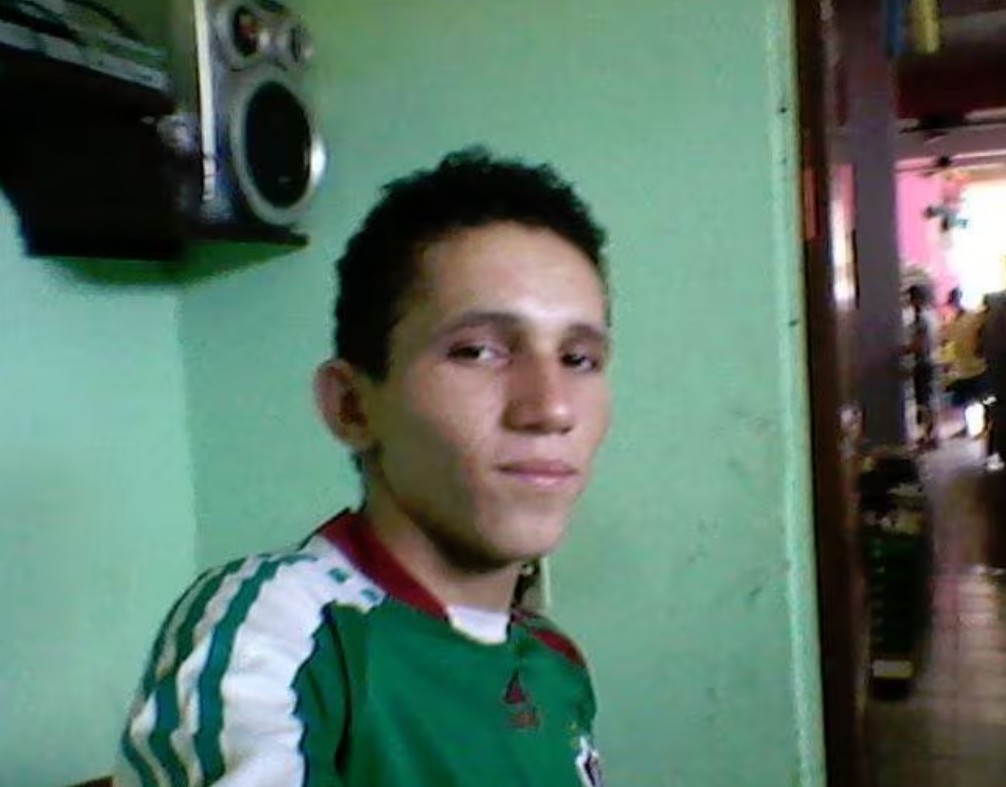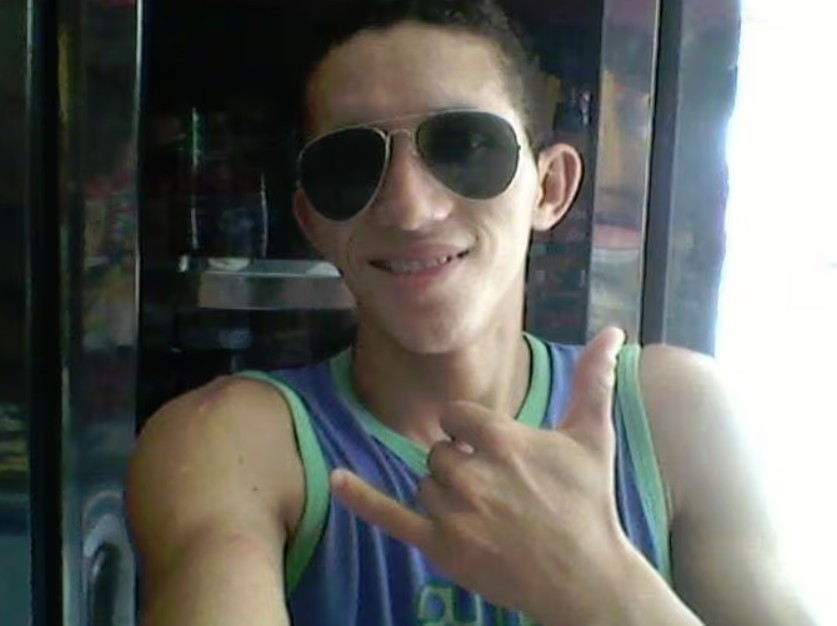Otávio Jordão da Silva Video and Mob Justice
On June 30, 2013, a shocking and brutal incident unfolded in the small Brazilian town of Pio XII, Maranhão. What began as an informal football match quickly descended into chaos and tragedy, ending in the deaths of both a player and the young referee. Otávio Jordão da Silva Cantanhede, a 20-year-old volunteer referee, fatally stabbed a player during an altercation. In response, enraged spectators stormed the pitch, lynched da Silva, and subjected him to one of the most gruesome acts of mob justice in recent history stoning. This case shocked Brazil and the international community, sparking debates about community violence, mob mentality, and the role of football in society.

This article takes a closer look at the events of that day, the social context behind them, and the lessons the world can learn from this tragic episode.
Contents
Background of Otávio Jordão da Silva
Otávio Jordão da Silva was only 20 years old at the time of his death. Known locally for his involvement in amateur football, he often participated in community games in his rural neighborhood. He was not a professional referee but rather a young man who stepped into the role whenever needed. On the day of the fatal match, he was reportedly unable to play due to a foot injury, so he took on the responsibility of officiating instead.
Uncensored video of the tragic scene of referee Otávio Jordão da Silva
otavio-jordao-da-silva-video.mp4
Like many young Brazilians, football was part of his daily life. In small towns such as Pio XII, matches served as a form of recreation, bonding, and community pride. However, unlike official games overseen by recognized organizations, these matches were informal, with few rules and no formal authority. This lack of structure would later prove to be a critical factor in the escalation of violence.
The Match Context
The game on June 30 was not part of an organized league. It was a casual pickup game held in a rural neighborhood where locals gathered to watch family and friends play. Reports confirm that the teams had no official names, and da Silva was not officiating under any formal association. He was simply the person chosen to enforce rules that day.

Such matches were common in Maranhão, where football was not just a sport but a vital community ritual. However, the absence of oversight also meant that conflicts could easily spiral out of control, especially when emotions ran high. The passionate environment set the stage for tragedy.
The Fatal Confrontation
During the match, tensions escalated between da Silva and a player named Josemir dos Santos Abreu, aged 31. At one point, da Silva decided to send Abreu off the field after a dispute. Abreu refused to comply, and a heated argument turned physical when he punched da Silva.
In a shocking turn, da Silva pulled a knife from his pocket and stabbed Abreu multiple times in front of horrified onlookers. The wounded player collapsed and was rushed to a hospital, but he succumbed to his injuries during the journey. News of his death quickly spread among the crowd, many of whom were Abreu’s relatives and close friends. The sense of grief and anger was immediate and soon transformed into uncontrollable rage.
Mob Reaction and Lynching
Once it became known that Abreu had died from his injuries, spectators stormed the field in a violent frenzy. The crowd, fueled by grief, anger, and a desire for vengeance, cornered da Silva.
The attack began with stones, as people hurled rocks at the young referee. He was quickly overwhelmed, beaten, and dragged by the mob. But the violence did not stop there. In one of the most shocking acts of mob justice in Brazil’s history.
The brutality of the lynching was not only a horrifying spectacle but also a symbolic gesture: a community consumed by rage, rejecting the law and embracing primitive retribution.
Police and Official Response
Local authorities quickly condemned the violence. Police chief Valter Costa, who oversaw the investigation, made a striking statement: “One crime will never justify another.” His words reflected the dual tragedy of the case while da Silva had indeed committed a crime by fatally stabbing Abreu, the mob’s response was an even greater atrocity.
The police investigation sought to identify those responsible for the lynching. Several suspects were arrested, but the chaotic nature of the crowd made it difficult to determine individual culpability. The case highlighted the challenges law enforcement faces in rural Brazil, where police presence is often limited, and communities sometimes take justice into their own hands.
Media Coverage and Global Reaction
The story quickly spread beyond Maranhão. Brazilian newspapers reported on the gruesome lynching, while international outlets expressed shock that such a horrific act could emerge from a simple football game. Headlines around the world framed it as a shocking example of violence both on and off the pitch.
For many, the incident raised unsettling questions: How could a community gathering centered around football, a sport celebrated for joy and unity, spiral into such savagery? Was this an isolated tragedy, or a reflection of deeper societal issues?
Social and Cultural Context
To fully understand the incident, one must consider the broader social environment. Football in Brazil is more than a game it is a cultural cornerstone, a source of pride, and a social glue. Yet, in impoverished rural regions, informal matches often lack oversight, security, and authority.
Moreover, mob justice has a history in certain parts of Brazil, where communities distrust police effectiveness and feel compelled to take matters into their own hands. The lynching of da Silva reflected both raw grief and this cultural tendency toward collective retribution.
The violent symbolism decapitation, quartering, and placing the head on a stake was particularly shocking but rooted in historical patterns of public executions and mob violence. It was an act meant to display power, vengeance, and community solidarity against perceived injustice.
Clarifications and Misconceptions
In the immediate aftermath, some media outlets misreported details, suggesting the match was an organized amateur league game. Later investigations clarified that it was merely a pickup match with no official sanctioning. Da Silva himself was not a certified referee but simply a local participant filling in that day.
This distinction is important because it underscores how quickly international coverage can distort events, framing them as part of Brazil’s organized football culture rather than a localized, unsanctioned tragedy.
Legacy and Lessons Learned
The deaths of both Abreu and da Silva remain a cautionary tale about the destructive potential of unchecked violence. For da Silva, carrying a knife to a casual community game proved disastrous, escalating a fistfight into a homicide. For the community, responding with mob justice not only ended another life but also left deep scars of trauma, horror, and mistrust.
The case highlights several lessons:
The need for community conflict resolution – disputes should never escalate unchecked.
The dangers of mob mentality – collective anger can transform ordinary people into participants in unspeakable acts.
The importance of law enforcement presence – rural areas require better structures to handle violence and prevent communities from taking justice into their own hands.
The fragility of social order – even an event as joyful as football can spiral into tragedy without safeguards.
The story of Otávio Jordão da Silva is one of the most disturbing episodes in Brazilian football’s long history. It serves as a tragic reminder of how human emotions, when unchecked, can escalate beyond comprehension. Both da Silva and Abreu lost their lives, and their community was left scarred by the violence.
Football is often described as “the beautiful game,” a sport that unites people across cultures and nations. Yet in Pio XII, Maranhão, it became the setting for an unspeakable tragedy. By remembering this case, societies are reminded of the dangers of mob justice, the importance of lawful resolution, and the urgent need to address the roots of violence in communities.
Only by confronting these realities can we ensure that such tragedies do not repeat themselves and that the spirit of football remains one of unity, not destruction.
Daily News -Justin D Mohn Video and National Alarm, Political Rant
Gabriela Lima Santana Video and Chilling Case
Alejandro Gonzalez Video and Died Heroically in Cancun
Vika and Vova Jump Video and Captivated the Internet
Hugo Figueroa Shot 100 Times in Viral Video
Kaeelen Garcia Viral Video and Digital Scandal
Ikbal Uzuner Video and The Case of Semih Çelik

